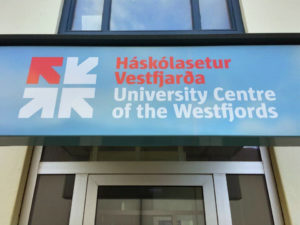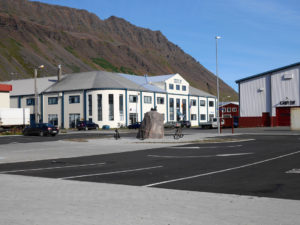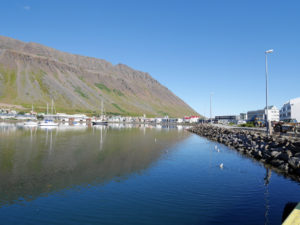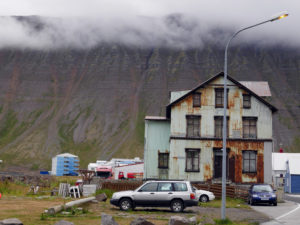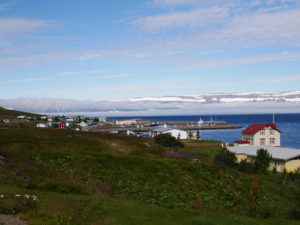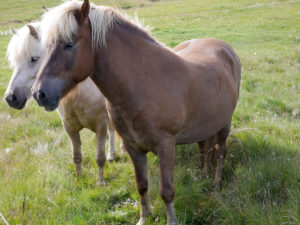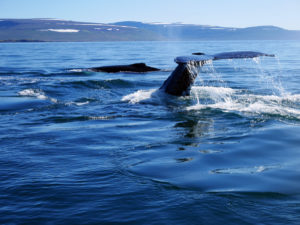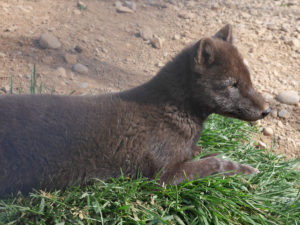I am working on the diachrony of case and word order in Indo-European languages. More precisely, I am conducting a corpus linguistic and visual analytic study of dative subjects in Icelandic on the basis of the Icelandic Parsed Historical Corpus (IcePaHC; Wallenberg et al. 2011) which is syntactically annotated according to the Penn Treebank scheme (Marcus et al. 1993). However, I noticed at some point that the annotation scheme of IcePaHC contains major irregularities and flaws and I found for example non-existing case marking patterns and verbs appearing with different case markers as given in the dictionaries. This is highly problematic as I would like to track language change and simple annotation mistakes might possibly lead to deceptive conclusions about the data. Thus, more knowledge about Icelandic was needed in order to fully understand and cope with the erroneous annotations in IcePaHC and to improve the qualitative part of the data analysis. This research activities are done within the SFB-TRR 161 project D02 “Evaluation Metrics for Visual Analytics in Linguistics”. Hence, supported by the the Transregio Graduate School, I attended a three weeks Icelandic summer school in August, includinig an intensive language course at the University of the Westfjords in Ísafjörður, Iceland.
The programm of this summer school consisted of morning classes every weekday from 9 to 12 o’clock and elective classes on most of the afternoons. The electives focused on questions about grammar, learning on how to communicate in every-day life situations such as e.g. how to order in a restaurant or bakery, and pronunciation. We even had a class on learning how to swear in Icelandic which was a lot of fun. Two evenings a week, our teachers showed Icelandic films, which were directed in the Westfjords to us and discussed them with us afterwards. This not only helped to improve our listening comprehension, but also made us understand the Icelandic culture and in particular the culture of the people living in the Westfords. Moreover, the University of the Westfjords provided transport and access to various theatre shows and other cultural events in the surrounding areas for us.
The summer school in Ísafjörður was highly profitable for my research within the SFB-TRR 161. I am now able to understand and process Icelandic case and word order on another level. I now know which constructions are actually possible in modern Icelandic. Furthermore, I find it easier to decide on whether an unexpected occurence of a combination of features in the data provided by IcePaHC is erroneous or actually displays a case of language change. Moreover, discussions with language teachers and fellow linguistic students who were taking part in the summer school led to the closer understanding on my previous work and provided new insights on my data.
Ísafjörður provides the perfect environment to learn Icelandic, as it is less touristic than for example Reykjavík. Ísafjörður’s few inhabitants were always helpful and willing to communicate in Icelandic with us foreigners and learners. Hence, in contrast to Reykjavík where mainly English is spoken in shops, theatres and other public places, one could easily practice and learn Icelandic in Ísafjörður.
Furthermore, I had the chance to explore the Westfjords (the locals call them “Bestfjords” and I absolutely agree) on the weekends with my fellow classmates and we made various trips to see beautiful waterfalls, old fishing villages, arctic foxes, Iceland horses, puffins and even a bunch of humpback whales right beside us on a whale watching tour.

